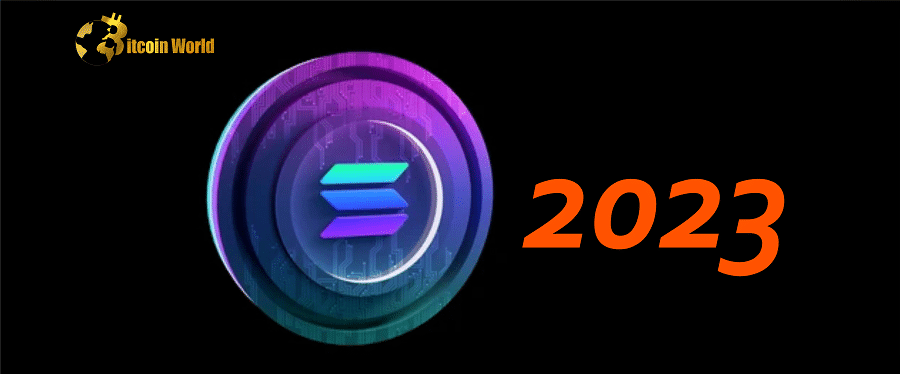According to its inventors, Anatoly Yakovenko and Raj Gokal, the Solana ecosystem is exhibiting signals of a promising future in the face of a tumultuous crypto market.
According to Electric Capital’s latest Developer Report, the number of developers on Solana has increased 83% year on year to over 2,000, placing it second only to Ethereum in terms of raw developer counts.
Yakovenko and Gokal founded Solana in late 2017 with the goal of using blockchain technology to create a future that values equal access to finance, freedom, and security. The mainnet was introduced in beta less than three years ago, and the Solana ecosystem has grown and evolved since then.
Regardless of the reputational harm done to the crypto industry as a whole in 2022, the team of developers behind this project is dedicated to the essential ideals of decentralization, self-sovereignty, and justice. The Solana network currently has over 2,000 validators, with the blockchain operating on over 2,000 nodes. Performance enhancements have also been made and scheduled in order to provide a more reliable and efficient network.
Decentralization and self-custody, for example, are crucial for a decentralized future, according to Yakovenko and Gokal. They think that decentralized finance is rapidly undermining established financial paradigms and that the only way to properly grasp the promise of web3 is to commit unwaveringly to those principles.
The crypto community, according to the Solana creators, might be viewed as an example of antifragility, a notion that indicates that attacks on a system can have the unintended result of making it stronger. Similarly, they believe that bear markets may have a similar effect, and Solana is no exception.
In 2022, Solana had many network disruptions, resulting in downtime and disrupting the network’s capacity to conduct transactions. These were triggered by a number of circumstances, including excessive transaction demand, network technical difficulties, and security breaches.
The frequent outages have harmed Solana’s reputation as a dependable and trustworthy platform, prompting some investors to doubt its stability and security. As a result, investor trust in the platform fell, prompting some to liquidate their assets and stop investing in it.
Yakovenko and Gokal confirmed that a validator client built by a third-party group, Firedancer, is expected to lower the risk of network disruptions dramatically. The release of this new validator client, which can handle 0.6 million transactions per second in a testing environment, might help transfer the network out of beta and into a more stable state.
Last summer, Sam Bankman-Fried, the former CEO of Alameda Research, was among many who lauded Solana as one of the most underappreciated cryptocurrencies. However, the token’s market value has plunged after the bankruptcy of the crypto exchange FTX.
SOL is presently trading below $24, down more than 90% from its all-time high of $260 in November 2021, and another fall might be on the way.
The fall of FTX has had a significant impact on the Solana ecology. The Foundation team published a blog post exposing Solana’s financial links to Bankman-enterprise. Fried’s
It emphasized that FTX and Alameda had acquired over 50.5 million SOL tokens, valued at nearly $500 million, which would be locked until 2028. It also indicated that FTX had roughly $1 million in cash or assets as of Nov. 6, 2022, the day the crypto exchange had to halt customer withdrawals owing to liquidity concerns.
During FTX’s bankruptcy proceedings, the status of these holdings is still unknown.
It is worth mentioning that two of the largest NFT collections on the Solana blockchain, DeGods and Y00ts, stated in recent weeks that they would be transferring to other blockchains, such as Ethereum and Polygon, respectively.
The quick decline in network value and the frequent outages raise concerns about the blockchain’s durability and the viability of decentralized exchanges like Serum, which Bankman-Fried created. Despite Yakovenko and Gokal’s faith in Solana, it is unclear if SOL will rebound from its recent slide.














